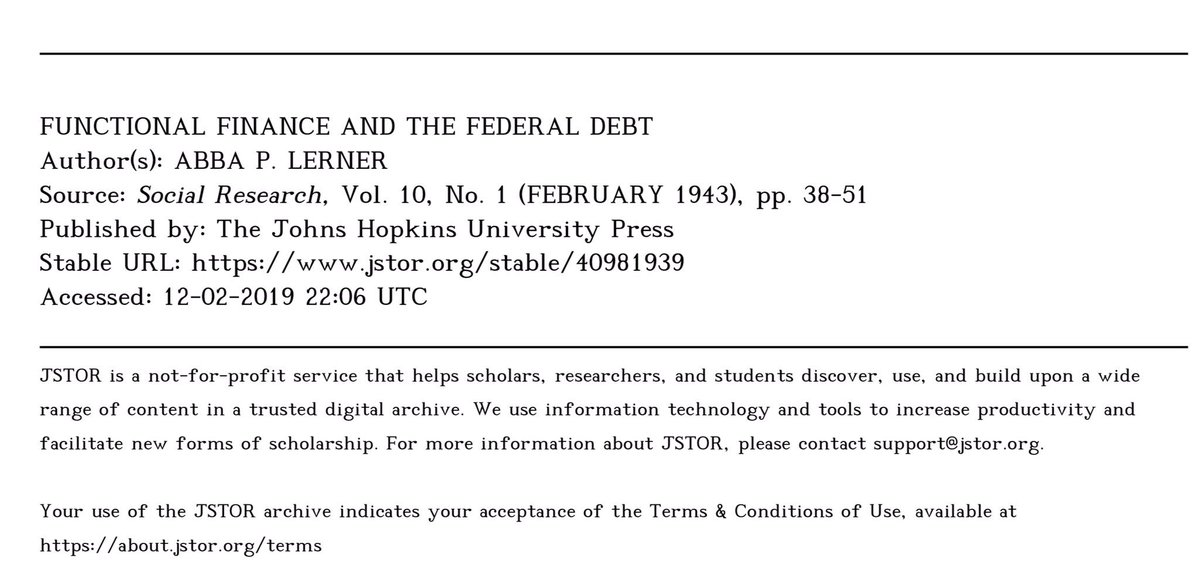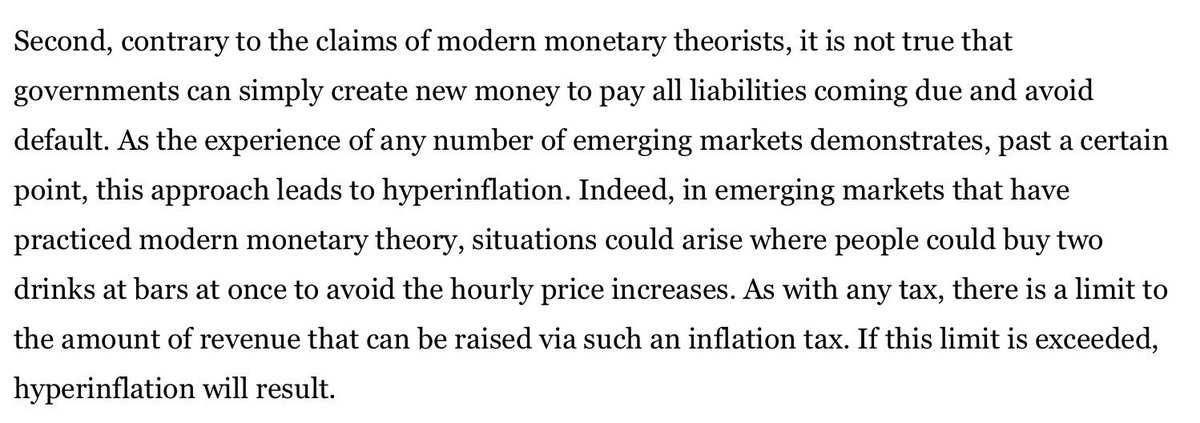We should talk about Functional Finance. Abba Lerner put forward the approach in the 1940s. He explicitly offered it as an alternative to the more timid pump-priming approach expounded by people like Alvin Hansen. Here’s the seminal paper. gc.cuny.edu/CUNY_GC/media/…


papers.ssrn.com/sol3/papers.cf…
wer.worldeconomicsassociation.org/files/WEA-WER-…
At the end of the day, this is where MMT and mainstream part ways on sustainability. They see interest as something markets determine. We see it as a matter of political economy.










